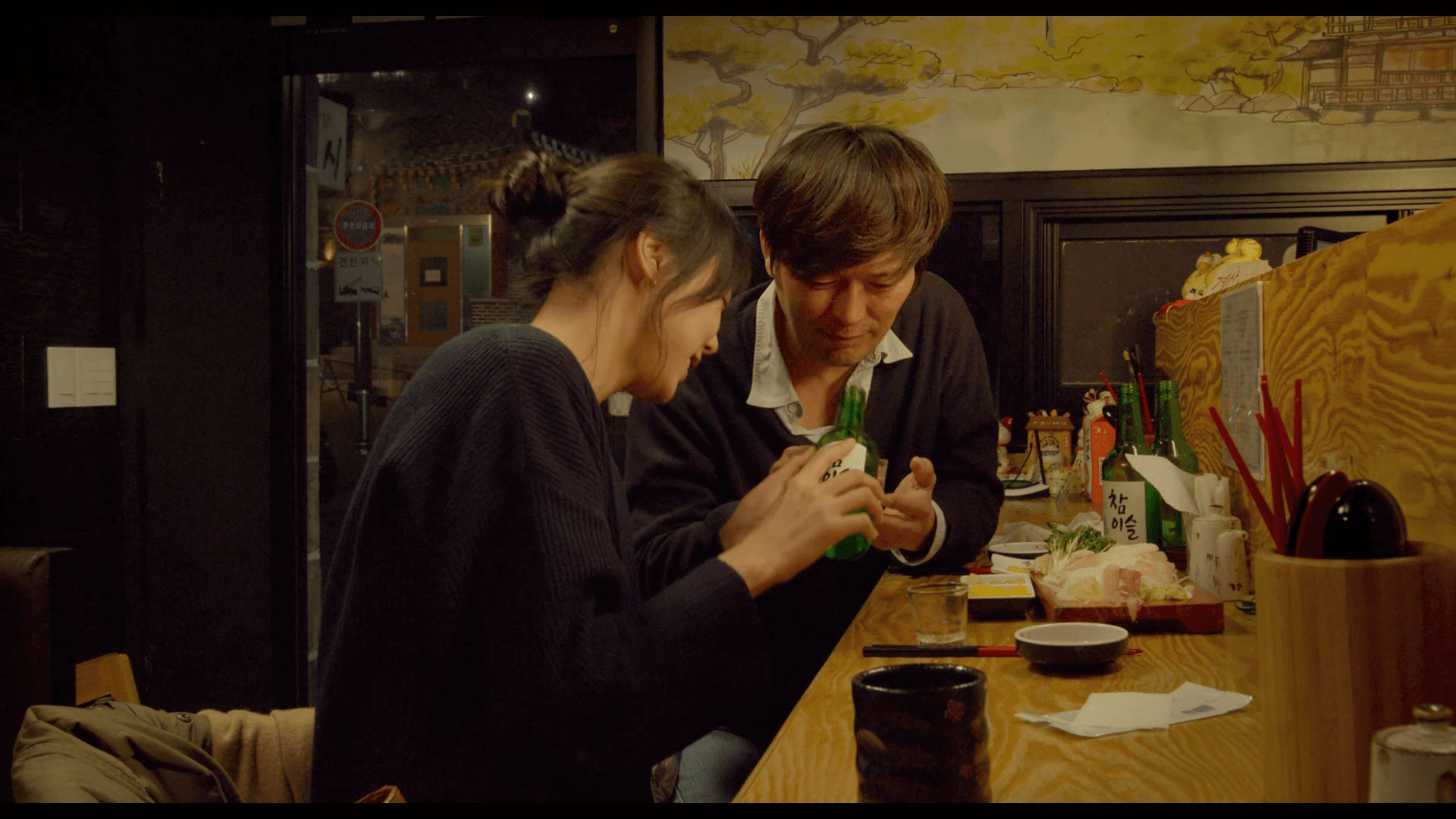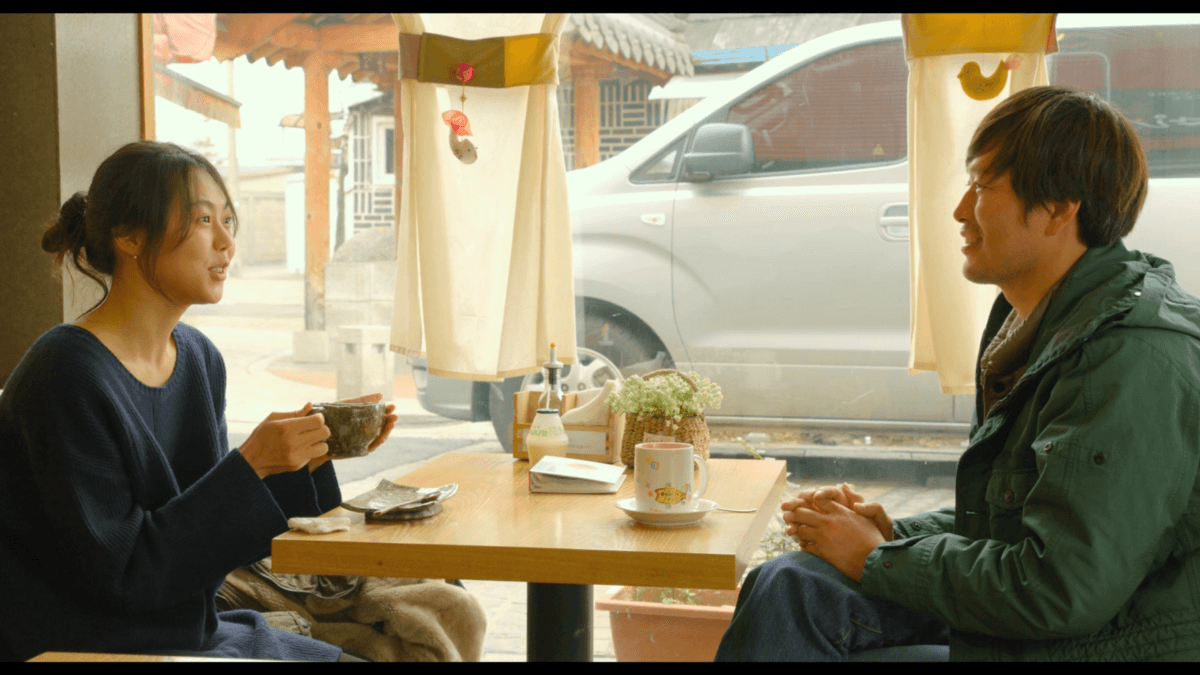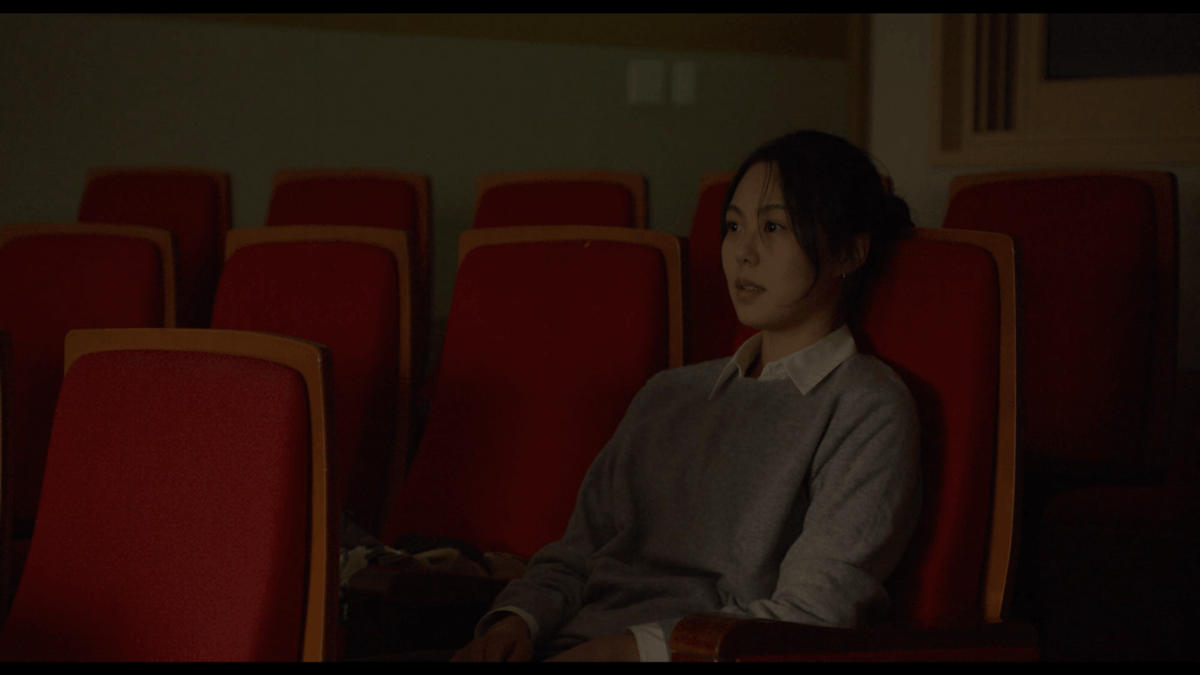 Windows open, angel outside. Should I be careful or should I be honest? Pretense first, candour later. The first time Hong uses reflections for inquisition wherein the wrong segment, Ham is the only one who looks in the mirror; a stance as of reminiscing how far-flung has his self-deception grown, a manufactured stew of despondency. This despondency, quite visible, in the the awkward silences of the bar; seems to be the suppressed recoil of personal ebullience, its cost apparently negligible until later reassessed. Dire recalls of hysteria appear in the later friends sequence, to further the universal ignorance of spreading moral decay. Improvisation supersedes admittance wherein here, even that is rare, covered by later attempts to pursue what the delusion believes is still probable.
Windows open, angel outside. Should I be careful or should I be honest? Pretense first, candour later. The first time Hong uses reflections for inquisition wherein the wrong segment, Ham is the only one who looks in the mirror; a stance as of reminiscing how far-flung has his self-deception grown, a manufactured stew of despondency. This despondency, quite visible, in the the awkward silences of the bar; seems to be the suppressed recoil of personal ebullience, its cost apparently negligible until later reassessed. Dire recalls of hysteria appear in the later friends sequence, to further the universal ignorance of spreading moral decay. Improvisation supersedes admittance wherein here, even that is rare, covered by later attempts to pursue what the delusion believes is still probable.

Tables turn, the coffee shot starts from full zoom as opposed to the closing in of the first half. We discard the babbling hypocrisy of the male and question the newlywed despondence of Yoon. Until we know the sadness has been a mark of her character whose necessity are social meetings but to really connect over a conversation is a friend; of whom she has none. Ham is candid now, perhaps to the extent of being blunt but it is alright. This alternate diptych imagines a no-bullshit worldview and applies it to both the leads. Until we reach the hotel scene, we know nothing about Ham except that we already feel like we do. He confesses then and there, after the drinks that get him drunk (as opposed to the fake real man stature of “I never got drunk in my entire life”) about what could happen. The transparency is invigorating, romantic and yet unbearably sad. Hong brings up the could-be(s) of his characters and makes them dream further.
Mirrors again but this time we see reflections of both, smiling in sadness. The picture now is realistic, a 1:1 hash sum of the people looking in it. By the time we reach the friends sequence, people have, too, started seeing Ham for his innocent honesty. Hong also speaks about the attachment of art to its artist, how the detachment only works when the artist is absent; you dethrone the art, you hurt the artist too. Ham’s comment on Yoon’s work stings. It comes from what he actually feels about the painting opposed to what he felt about the artist because this time around, he’s fascinated by the artist but not so much by the art. The difference being the attention that he invests in each iteration. The out-of-nowhere Ham’s strip makes Yoon laugh in fascination of the peculiarity because although his reactions may be weird or unprecedented, they are beautifully natural.

The thing that surprises me the most is how Right Now, Wrong Then is a refutation of On The Occasion of Remembering The Turning Gate in its drama while indicating the structural bewilderment of Virgin Stripped Bare By Her Bachelors in its title (both irrefutably brilliant films, by the way). Hong’s obsession with the formal remodeling of his own life augments to the point where his main character is openly labeled a womanizer, dating actresses after marriage and standardizing speech to the extent of insincerity, but he somehow gets Yoon to call him a real man even in his perfidy. How stinging it must be to keep pushing needles into one’s skin just so you can illusion yourself into believing that you could have lived it different. Cinema, son-seng-neem, please don’t stop directing.